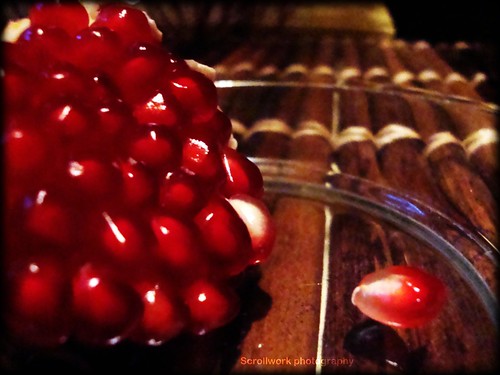Are we better as part of something bigger than us, or do we hit our peak potential only when we tune in to what makes us unique? Do we bear more fruit—or sweeter fruit—on our own or on demand?
I was getting ready to send out a Friday wind-down greeting on Facebook. The message would have encouraged friends and family to put down the workday yoke, take off the company mask and spend time being only who they choose to be as individuals. Easy for me to say; I've been self-employed for a year.
Would the transition be at great cost? Would it make their Monday mornings suck even worse? Is it all that bad being part of a machine that works, given the stability and benefits?
I chafe at the good-soldier expectations that come with employment but look around my house and see everyday examples that more can be accomplished as a part of a whole—even as a mediocre part: one light in my outdated chandelier; one blade on the ceiling fan; one leg on the table.
When I post status updates as a dance teacher, the key message is, "Join us!" The implication being that life, meaning yours, is lacking if you don't learn to cha-cha with us. I position our dance studio as something you need to make your life richer, to color the corporate grays away.
When I post a link to this blog, the message is "Come away with me." Turn your back on the blur and static, and focus on this one thought of mine, how it affects you, what thoughts it might provoke.
For a loner, I'm such a joiner. For a joiner, I'm a loner. I am an intensely private introvert who has built a career that hinges on incessant public contact. I am a regular contributor of photos to flickr.com who has yet to join a flickr group even when I know that it will spur me to create with even more passion. I am the youngest of six who lives 8,000 miles of ocean away from siblings, has visited once in 25 years, and has never wished I had a twin. But I devour the substitute memories contained in my sister's Facebook album collages!
I am a believer in the Christian faith, embracing the definition of sanctified as "set apart from the world," yet intrigued by the Buddhist perspective of everyone and everything being one and indistinct. The latter viewpoint draws me in with its take on suffering, conflict and oppression: if ego is a fictional construct, conflict with another is conflict with ourselves. Why fight? Being oppressed (by bosses, road rage drivers, rude customer "service" clerks) is less a personal affront, because even the oppressors suffer—from their own diminished status as human beings lacking in compassion.
I am a Filipino ex-pat who has by choice acculturated apart from the immigrant community, but has of late realized that my privilege as a bicultural person comes with the duty to voice the experience to validate the experience of others.
I am the patient nibbler of pomegranate and atis, with seeds that must be teased apart but flesh that my mouth can only appreciate en masse.


No comments:
Post a Comment